Can You Lose Your Blue Badge for Misuse?
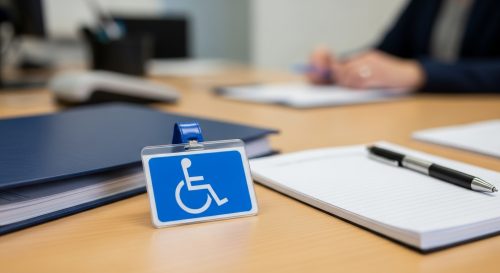
Can You Lose Your Blue Badge for Misuse?
The Blue Badge scheme is a crucial support system for individuals with disabilities, offering enhanced accessibility to parking spaces and public facilities. However, as with any system designed to assist vulnerable individuals, the misuse of a Blue Badge can lead to serious consequences. One pressing question is: “Can you lose your Blue Badge for misuse?” The answer is unequivocally yes.
This article explores the circumstances under which a Blue Badge might be revoked, the consequences of losing this privilege, and practical steps to prevent misuse and protect your badge.
Understanding Blue Badge Misuse
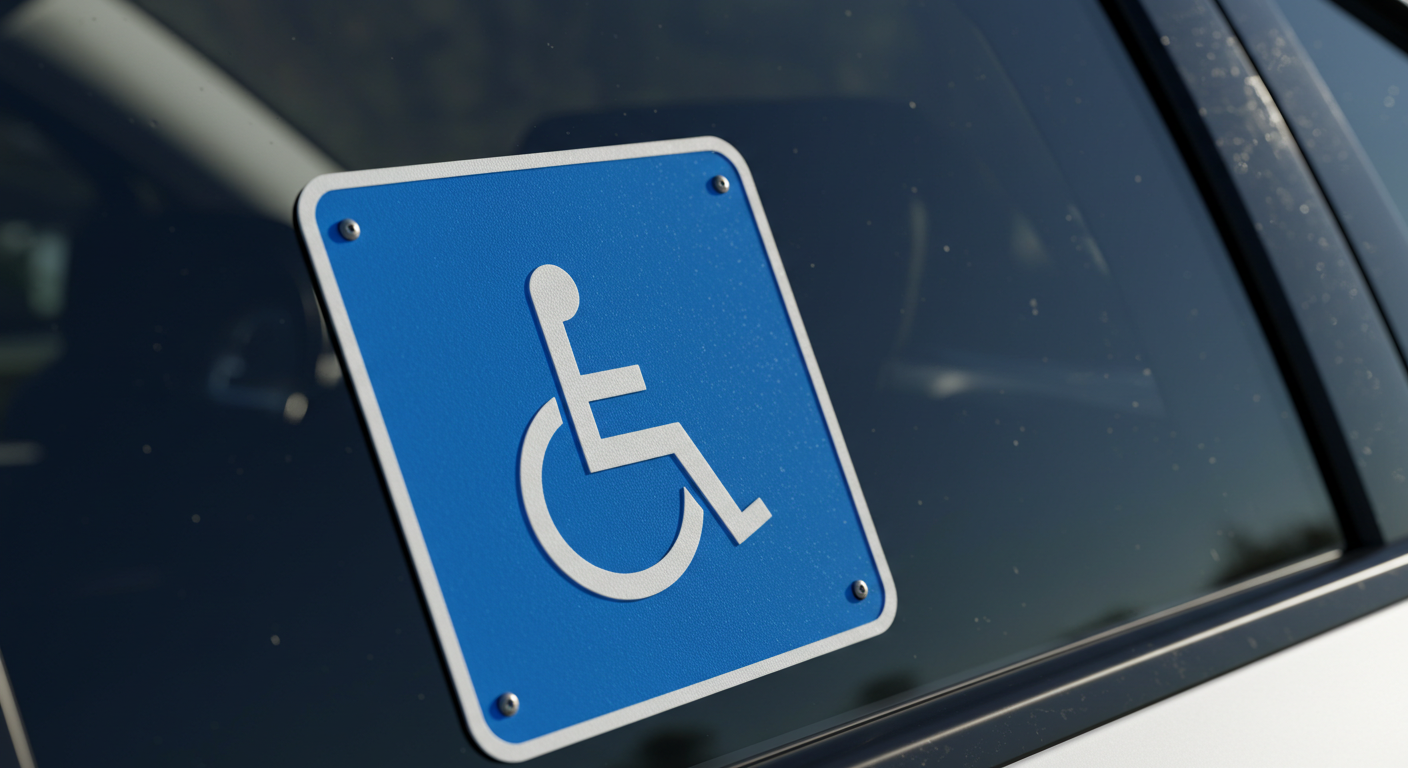
Misuse occurs when a Blue Badge is used in a manner that contravenes the rules of the scheme. Common examples include:
- Using the Badge Without the Holder Present
- Example: A family member uses the badge to park closer to a shopping centre without the badge holder accompanying them.
- Using an Expired, Lost, or Stolen Badge
- Example: Continuing to use a badge that has passed its expiry date or has been reported stolen.
- Lending the Badge to Others
- Example: Allowing a friend or relative to use the badge for their own convenience, even if the intent is to assist the badge holder.
- Forging or Altering a Badge
- Example: Tampering with the expiry date or details on the badge to extend its use.
- Parking in Restricted Areas
- Example: Using the badge to park in zones not covered by the scheme, such as loading bays or private car parks without permission.
Misuse may be intentional or accidental, but the consequences can be severe in either case.
Can You Lose Your Blue Badge for Misuse?
Yes, local councils have the authority to revoke a Blue Badge if they determine it has been misused. The specific circumstances leading to revocation include:
- Proven Misuse
If you or someone using your badge is found to have breached the scheme’s rules, the badge may be confiscated.
- Example: A driver caught using a badge that belonged to a deceased relative had their badge revoked and were required to reapply under stricter scrutiny.
- Multiple Offences
Repeated misuse, even if minor, can demonstrate a pattern of non-compliance that leads to revocation.
- Example: A badge holder who repeatedly fails to display the badge correctly may lose the badge after multiple warnings.
- Fraudulent Use
Any form of fraudulent behaviour, such as forgery or selling counterfeit badges, results in immediate revocation and potential prosecution.
- Example: A person caught selling fake Blue Badges online had their legitimate badge revoked and faced criminal charges.
- False Information During Application
Providing inaccurate or misleading information when applying for a badge can lead to its cancellation once discovered.
- Example: A person who exaggerated their mobility issues during the application process had their badge revoked after an investigation.
Consequences of Losing Your Blue Badge
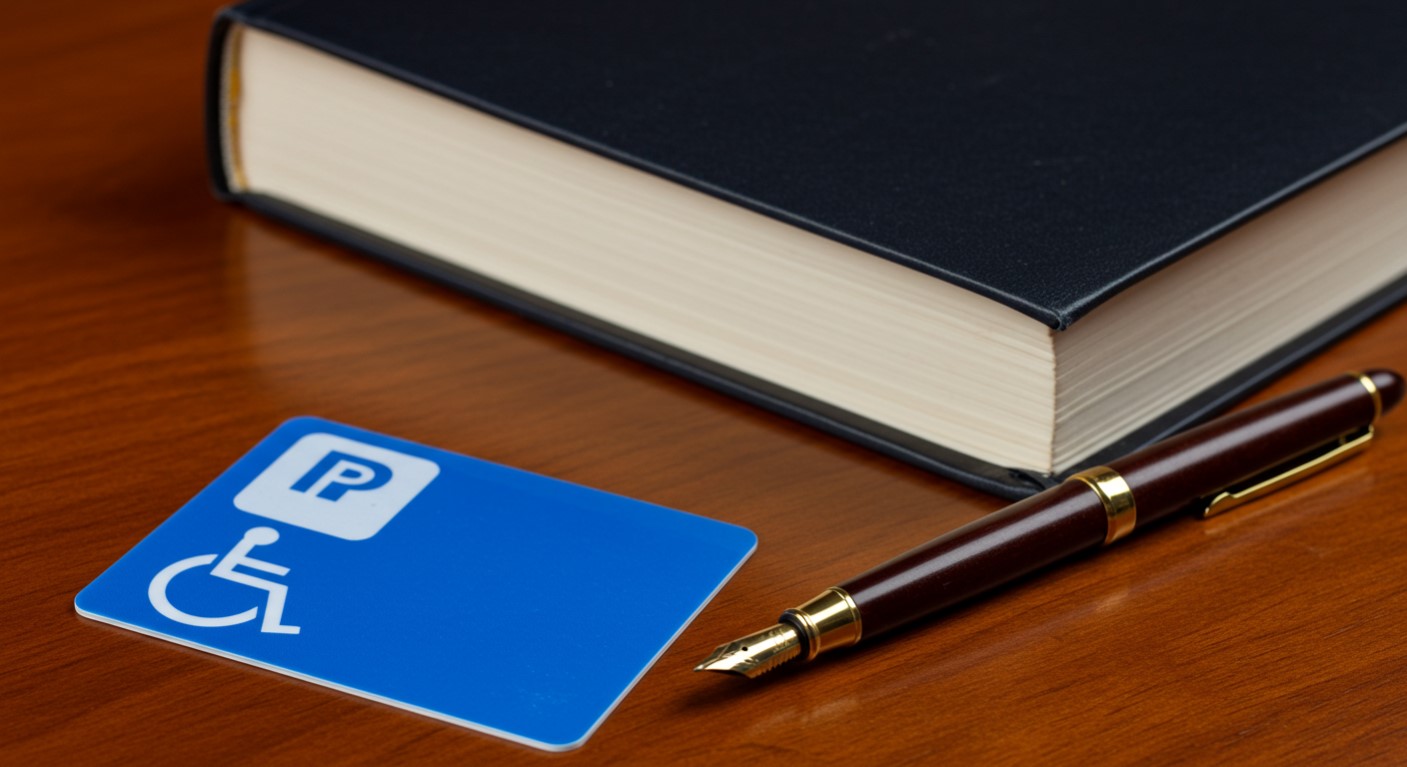
The loss of a Blue Badge can have far-reaching consequences, both practical and legal:
- Loss of Parking Privileges
Without a Blue Badge, individuals with disabilities may face significant challenges accessing facilities and parking near their destinations.
- Fines and Penalties
If the badge is revoked due to misuse, any related fines or penalties must still be paid.
- Example: A driver fined £500 for misuse was also required to reapply for a badge, incurring additional costs.
- Difficulty Reapplying
Once a badge is revoked, reapplying can become more challenging, as councils may impose stricter assessments or require additional evidence of eligibility.
- Legal Consequences
For severe cases involving fraud, offenders may face prosecution, resulting in criminal records, community service, or even imprisonment.
How Councils Monitor and Enforce Blue Badge Misuse
Local councils are responsible for monitoring and enforcing the proper use of Blue Badges. Their methods include:
- Spot Checks
Parking enforcement officers routinely check vehicles displaying Blue Badges to ensure compliance.
- Example: Officers may verify that the badge holder is present and that the badge is displayed correctly.
- Badge Seizure
If misuse is identified during a spot check, officers can confiscate the badge on the spot.
- Investigations
For suspected fraud or repeated misuse, councils may launch formal investigations, which can include:
- Reviewing parking records.
- Conducting surveillance.
- Interviewing badge holders and witnesses.
- Public Reporting
Councils often rely on reports from the public to identify misuse. Anonymous tip lines or online reporting systems allow individuals to notify authorities of suspected violations.
Steps to Prevent Blue Badge Misuse
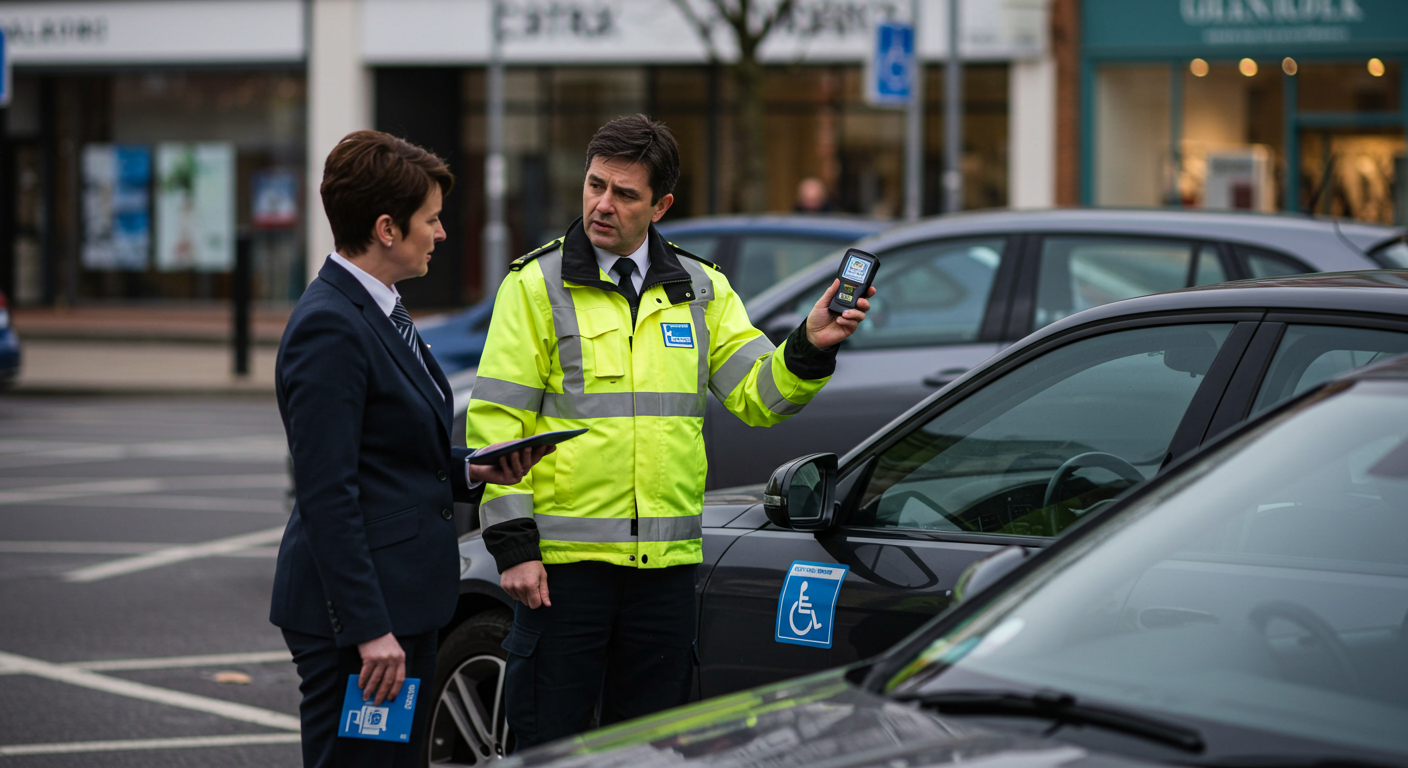
Preventing misuse not only protects your badge but also supports the integrity of the scheme. Here are practical tips to ensure compliance:
- Understand the Rules
Familiarise yourself with the guidelines provided by your local council when the badge is issued. Key points include:
- When and where the badge can be used.
- How to display it properly.
- Educate Family and Friends
Ensure anyone who may assist or drive you understands the badge’s purpose and restrictions.
- Example: Explain that the badge cannot be used if you, the badge holder, are not present in the vehicle.
- Renew the Badge Promptly
Keep track of your badge’s expiry date and submit a renewal application well in advance.
- Example: Set a reminder on your phone or calendar to renew your badge at least a month before it expires.
- Report Lost or Stolen Badges Immediately
Notify your local council if your badge is lost or stolen to prevent it from being misused by others.
- Avoid Assumptions About Valid Use
Not all parking spaces are covered by the Blue Badge scheme. Always check local signage and regulations before parking.
What to Do If Your Badge Is Revoked
If your badge has been revoked, you have the right to appeal the decision or reapply, depending on the circumstances.
- Review the Reason for Revocation
Request a detailed explanation from your council to understand why your badge was revoked.
- Submit an Appeal
If you believe the revocation was unjust, follow your council’s appeals process. Provide evidence to support your case, such as:
- Witness statements.
- Medical documentation.
- Parking records.
- Reapply for a Badge
If the revocation is upheld, you may be eligible to reapply. Ensure your application is thorough and includes all required supporting evidence.
Key Takeaways: Can You Lose Your Blue Badge for Misuse?
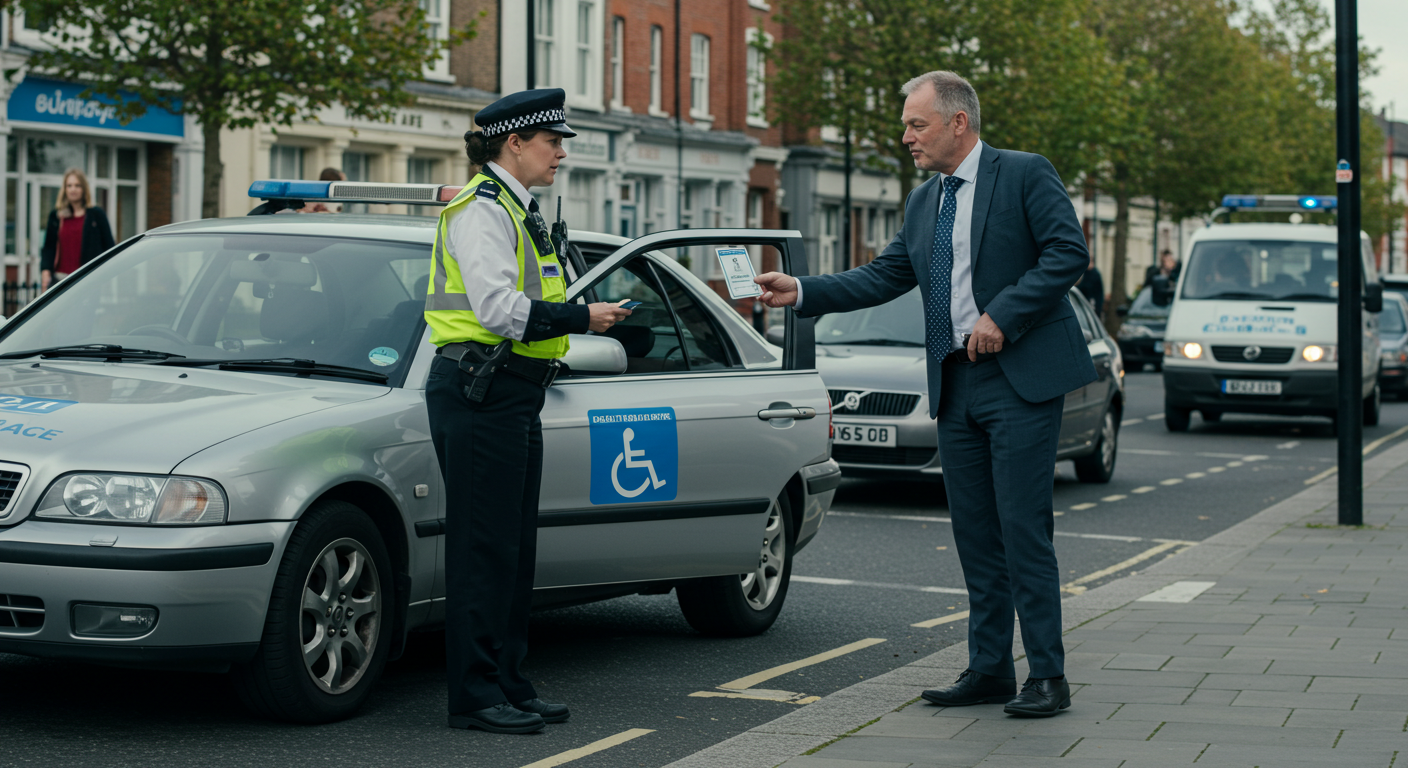
- Blue Badge misuse can lead to revocation: Councils have the authority to confiscate badges if rules are breached, whether intentionally or accidentally.
- Misuse carries broader consequences: Beyond losing parking privileges, offenders may face fines, legal action, and reputational damage.
- Prevention is key: Understanding the rules, educating others, and staying organised can help avoid unintentional misuse.
- Appeals are possible: If you believe your badge was revoked unfairly, you can challenge the decision or reapply under stricter conditions.
The Blue Badge scheme is a vital resource for individuals with disabilities, but its effectiveness depends on responsible use. Misuse, whether intentional or accidental, not only jeopardises your access to the scheme but also impacts others who rely on it.
If you have concerns about badge misuse, revocation, or appealing a council decision, our team is here to help. Contact us for expert legal advice and personalised assistance.
By using Blue Badges responsibly and understanding the rules, we can protect this essential system, ensuring it continues to serve those who need it most.
Notice: Informational Content Disclaimer
The content provided on this website, including articles, blog posts, and other informational materials, is intended for general informational purposes only. It is not intended as, and should not be considered, legal advice.
Visitors to this website should be aware that the information presented here is not a substitute for seeking legal advice from a qualified solicitor or legal professional. Each individual's legal situation is unique, and the information provided may not be applicable to specific circumstances.
If you require legal advice or have specific legal questions, we encourage you to contact us directly. Our experienced team of solicitors is here to assist you with your legal needs and provide tailored advice to address your concerns.
Please be advised that any communication through this website, including the use of contact forms or email, does not create a solicitor-client relationship. Confidential or time-sensitive information should not be sent through this website. To establish a solicitor-client relationship and discuss your legal matters in detail, please contact us for a consultation.
We strive to provide accurate and up-to-date information, but we make no representations or warranties regarding the accuracy, completeness, or suitability of the information contained on this website. We shall not be liable for any reliance placed on the information provided herein.
Thank you for visiting our website. We look forward to the opportunity to assist you with your legal needs.




